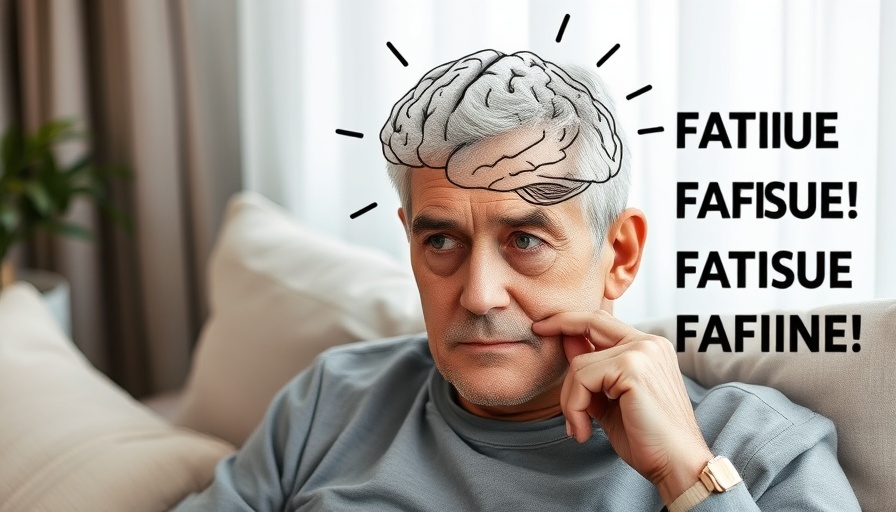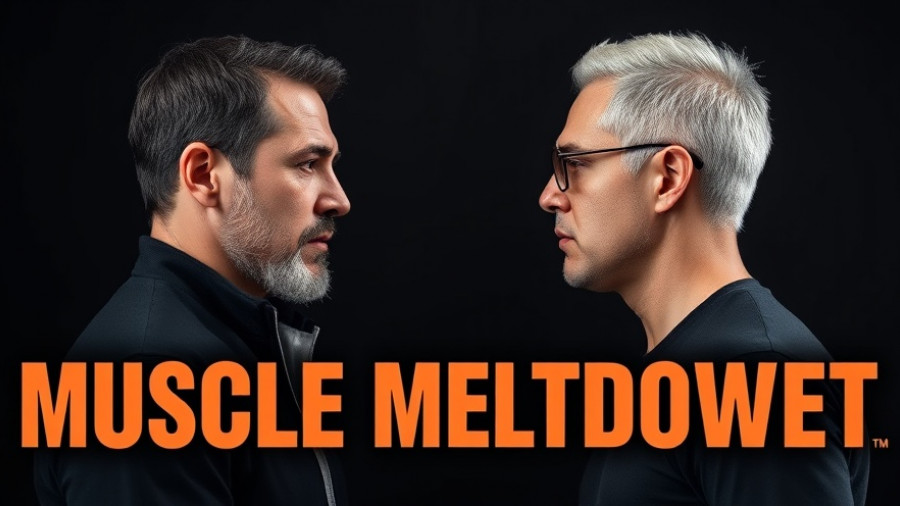
The Hidden Truth Behind Brain Fog: It’s More Than Just Tiredness
Brain fog has become an all-too-common experience for many individuals, often dismissed as a mere symptom of fatigue or aging. However, as highlighted in the insightful video How I Cleared 15 Years of Brain Fog, this condition stems from a deep-rooted issue that affects our brain's cellular energy systems. The brain consumes around 20% of our body's energy supply while only accounting for 2% of our weight, relying heavily on efficient mitochondria to function optimally. When these energy producers break down due to various lifestyle factors, what we recognize as brain fog becomes a day-to-day struggle for clarity and focus.
In How I Cleared 15 Years of Brain Fog, the discussion dives into the physiological roots of brain fog and explores essential lifestyle adjustments to clear the haze.
Connecting Nutrition and Mitochondrial Health
Understanding the connection between nutrition and mitochondrial health is essential for anyone looking to enhance their cognitive function. The modern diet, loaded with processed grains, refined sugars, and harmful seed oils, can lead to inflammation and ultimately impair our brain's performance. Instead, high-octane brain foods like pasture-raised eggs, organic blueberries, and healthy fats are vital in nourishing the mitochondria. Cutting out common brain poisons while enriching meals with the right nutrients can dramatically reduce brain fog. Once individuals start viewing food as either fuel or poison for their brain, cognitive clarity can improve significantly.
The Role of Movement: Finding the Right Balance
Instead of the conventional wisdom of pushing through exhaustive workouts, the video emphasizes the importance of smart movement practices. Engaging in low-intensity activities like walking can stimulate blood flow and energize mitochondria without spiking cortisol levels. Moreover, high-intensity interval training (HIIT), which focuses on short bursts of effort without extended cardio, has been proven more effective in promoting cardiovascular fitness and mitochondrial health. This innovative approach significantly impacts reducing brain fog and enhancing mental sharpness.
Sleep and Mindfulness: Essential for Optimal Functioning
Another critical aspect of combating brain fog involves prioritizing sleep optimization and mindfulness practices. Quality sleep restores mitochondrial function and supports cognitive health. Techniques such as mindfulness meditation and cold therapy can further enhance our mental clarity and emotional stability. By creating a holistic routine that focuses on these essential elements, individuals can reclaim their brainpower and drive.
As we explore the depths of mitochondrial health, it has become clear that tackling brain fog isn't just about finding quick fixes or productivity hacks. Rather, it’s about nurturing our cellular energy systems with the right foods, movement, and mental practices. By investing time in our nutrition and lifestyle choices, we pave the way for clearer, sharper minds and a revitalized sense of self.



Write A Comment